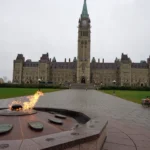
The Lighthouse of Alexandria was the world’s first lighthouse. Construction began in 290 BC and lasted twenty years. Except for the Great Pyramid, it was the tallest building in the world when it was completed. It was constructed on the island of Pharos to aid in the navigation of trade ships into Alexandria, Egypt’s busy harbor. Several earthquakes damaged the lighthouse, and it eventually became an abandoned ruin. French archaeologists discovered some of the lighthouse’s remains in Alexandria’s Eastern Harbor in 1994.
The Alexandria Lighthouse is also known as the Pharos of Alexandria.
Alexander the Great gave the city of Alexandria its name. He named 17 cities after himself, but Alexandria was one of the few that survived. It is still a thriving city today.
Alexander the Great passed away in 323 BC. The Alexandria Lighthouse was constructed beginning in 290 BC, many years after Alexander the Great’s death.
Egypt’s ruler, Ptolemy Soter, decided to build the lighthouse to guide sailors into the port.
It would have cost around three million dollars to build in today’s money. It cost 800 talents in 290 BC (the form of money in this time).
It is believed to have been built of limestone blocks.
The lighthouse’s lowest level was 100 feet square and 240 feet tall. The second level was about 115 feet tall and had eight sides. The third level was a 60-foot-tall cylinder with an opening at the top to allow for a space where a fire could burn to light the way for sailors at night. On top of this was a statue of Poseidon, the Greek god of the sea.
The Alexandria Lighthouse stood approximately 450 feet tall.
People could climb the stairs inside the lighthouse to reach the beacon chamber.
There was said to be a large mirror inside, possibly made of polished bronze. The mirror’s purpose was to project a beam of light from the fire’s reflection.
Three earthquakes wreaked havoc on it. It was abandoned and demolished after the last earthquake. This made it possible for sailors to see the beam at night. The smoke from the fire was important during the day because it guided sailors. Both the light beam and the smoke could be seen from up to 100 miles away.
The Great Pyramid of Giza is the oldest of the Seven Wonders of the Ancient World to have survived. The Mausoleum of Halicarnassus is the second longest surviving structure, and the Lighthouse of Alexandria is the third longest.
The last remaining stone from the lighthouse was used to construct the Citadel of Qaitbay by the Sultan of Egypt Qaitbay in 1480. The citadel was built on the same island as the lighthouse.
Julius Caesar mentions the Alexandria Lighthouse in his writings.
Today, the lighthouse symbol appears on the flag of the Alexandria Governorate as well as on the city’s seal. It’s also on the Alexandria University seal.
Lighthouse of Alexandria FAQs: Illuminating the Wonder of the Ancient World
The Lighthouse of Alexandria, one of the Seven Wonders of the Ancient World, continues to capture our imagination. Here are some FAQs to unravel the mysteries of this remarkable lighthouse:
1. Where was the Lighthouse of Alexandria located?
The Lighthouse of Alexandria stood proudly on the small island of Pharos, just off the coast of Alexandria, Egypt. This strategic location guided ships safely into the busy harbor.
2. When was the Lighthouse of Alexandria built?
Construction of the lighthouse is estimated to have begun around 280 BCE during the reign of Ptolemy II Philadelphus and was likely completed by his son, Ptolemy III Euergetes.
3. Who designed the Lighthouse of Alexandria?
The architect credited with designing this marvel is Sostratus of Cnidus. Legend has it, he inscribed his name on the base of the lighthouse, hidden beneath layers of plaster, to ensure his legacy.
4. How tall was the Lighthouse of Alexandria?
While exact measurements are unknown, historical accounts suggest the lighthouse stood between 330 and 390 feet (100 to 120 meters) tall. This made it one of the most prominent structures in the ancient world, surpassed only by the Great Pyramids of Giza.
5. How did the Lighthouse of Alexandria function?
The lighthouse used a complex system of mirrors to reflect a powerful beam of light towards the sea. The exact fuel source for the light is debated, with theories suggesting large bonfires fueled by wood or a combination of wood and oil.
6. What was the purpose of the Lighthouse of Alexandria?
The primary purpose of the lighthouse was to guide ships safely into Alexandria’s harbor, especially during nighttime or bad weather. Alexandria was a major trading hub, and the lighthouse played a crucial role in ensuring the safe passage of ships and the continued prosperity of the city.
7. What materials were used to build the Lighthouse?
The lighthouse was constructed primarily from massive limestone blocks, quarried nearby. Bronze and possibly even glass may have been used for the intricate mirrors that reflected the light.
8. What happened to the Lighthouse of Alexandria?
Several devastating earthquakes over the centuries severely damaged the lighthouse. By the 15th century, it had become a ruin. The remains of the lighthouse were eventually incorporated into the construction of the Citadel of Qaitbay, a 15th-century fort that still stands on the site today.
9. What is the legacy of the Lighthouse of Alexandria?
Although the physical structure is no more, the Lighthouse of Alexandria’s legacy endures. It served as a model for lighthouses throughout history and inspired countless artistic and literary works. It remains a testament to the ingenuity and engineering prowess of the ancient world.
10. Can I see the Lighthouse of Alexandria today?
Unfortunately, the Lighthouse of Alexandria itself cannot be seen today. However, you can visit the Citadel of Qaitbay, which may incorporate some remnants of the lighthouse in its foundation. Additionally, museums worldwide exhibit artifacts and reconstructions related to the lighthouse, allowing you to experience a glimpse of its former glory.









